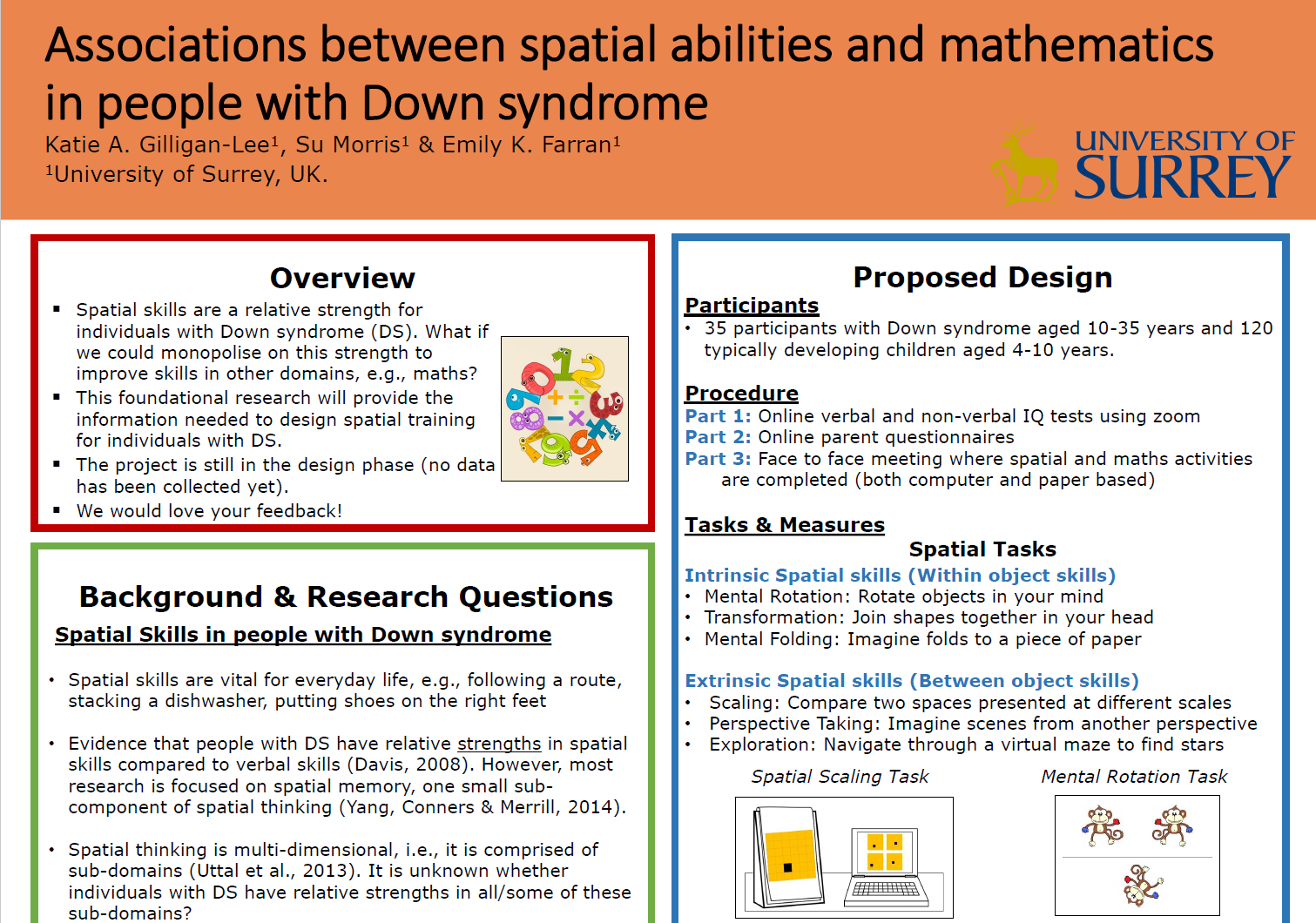Associations between spatial abilities and mathematics in people with Down syndrome
Associations between spatial abilities and mathematics in people with Down syndrome
- University of Surrey
Contact: k.gilligan@surrey.ac.uk
Abstract
Introduction: This presentation describes a planned study; we would welcome your feedback. Data collection is planned for later this year. Spatial skills are important for everyday living, such as following a route, stacking a dishwasher, or putting shoes on the right feet. Studies have identified a robust association between spatial abilities and mathematics performance in typically developing children (Mix et al., 2016) and have even shown that mathematics outcomes can be improved through training spatial abilities (Gilligan et al., 2019). However, there is little research into spatial abilities and their associations with mathematics in people with Down syndrome.
Research questions: There are three key aims of this study. First, to compare the development of spatial abilities in individuals with Down syndrome to those of typically developing individuals. Second, to identify relative strengths and weaknesses in different spatial abilities in Down syndrome. And third, to examine whether spatial ability predicts attainment on different mathematics measures, and whether this differs between typically developing participants and those with Down syndrome.
Methods: We will recruit 35 participants with Down syndrome, aged 10 to 35 years, and 120 typically developing children, aged 5 to 11 years. Participants will complete six spatial tasks and several mathematics tasks including early mathematics skills, arithmetic, and shape tasks. Caregivers will complete short questionnaires regarding their son/daughter's navigation abilities and spatial anxiety.
Results: We predict larger associations between spatial abilities and mathematics in people with Down syndrome than in typically developing children, due to their relative strength in visuo-spatial over verbal abilities (Yang et al., 2014). We also expect to find a different spatial profile in the two groups of participants.
Impact: The findings from this study will provide valuable information about spatial abilities in people with Down syndrome using a wider range of tasks than previous studies. This more complete picture could help to identify ways of improving mathematics performance through spatial abilities for individuals with Down syndrome.
Poster:
Download the PDF here


